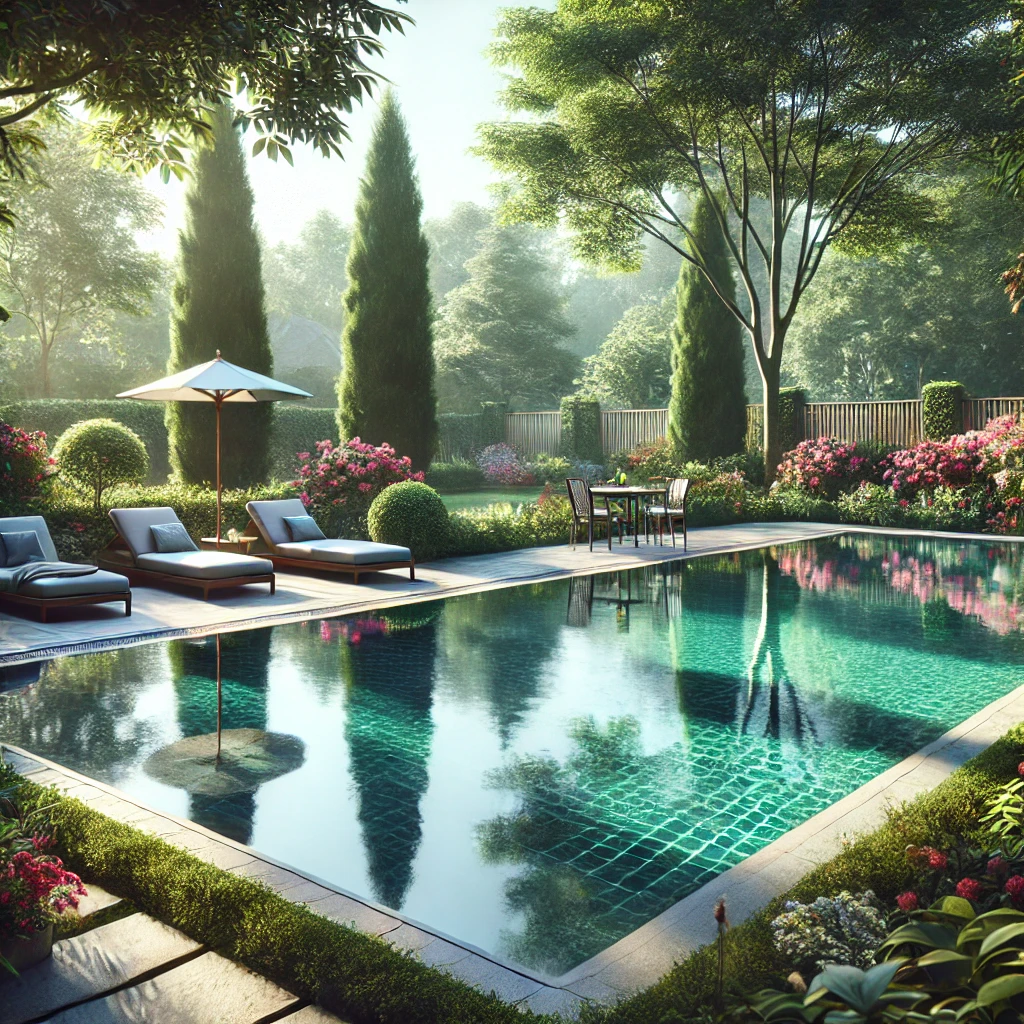
Pools can be a great way to create an outdoor entertaining and recreation area in the comfort of your own backyard to help you and your family unwind and beat the heat. However, as with any home investment, it’s important to understand the costs and long-term implications of owning a pool.
Here we’ll look at the average lifespan of different types of pools and maintenance tips to help you decide which option is best for your needs, which can help you decide how much to save and whether you need pool financing to make your home improvement a reality.
In-Ground Pool Longevity
In-ground pools come in many different shapes and sizes. You can choose from a pre-formed vinyl liner, a gunite concrete pool, or even a hybrid option.
Generally speaking, concrete pools have the best longevity, lasting an average of 50 years or more with proper maintenance and care. Concrete pools typically take longer to install and cost significantly more than pools made of vinyl liners, but the long-term savings associated with not having to replace vinyl pool liners can make it well worth it.
Pools with vinyl lining usually last an average of 10 years before the lining needs to be replaced. The lifespan of a vinyl liner pool largely depends on how much sunlight it receives and the frequency of maintenance. Vinyl liners tend to degrade faster in direct sunlight, so it’s important to look for a pool cover or other shading solution if you opt for this type of pool. Vinyl liner pools are quicker to install and cost less upfront than concrete pools.
Hybrid pools combine concrete and vinyl lining, allowing for some customization with the design. These types of pools usually have the same lifespan as a vinyl liner pool and cost more than a vinyl liner but less than a totally concrete pool.
Above-Ground Pool Longevity
Above-ground pools are an affordable and relatively easy way to add a pool to your backyard. They typically come in two varieties – frame-on-liner or the sturdier metal wall panel models. Generally, above-ground pools can last 7-15 years before needing major repairs or replacement. However, the longevity highly depends on the pool’s quality and maintenance frequency.
Pool Maintenance Tips
Regardless of the type of pool you choose, regular maintenance is essential to keeping your pool safe and sanitary and extending its lifespan. Pool upkeep and repair costs can vary widely depending on the problem and type of pool, so it’s important to budget accordingly. Pool financing is often available through banks or other financial institutions if you need help covering the costs of a new pool or maintenance.
With that said, some basic tips for maintaining your pool include:
• Cleaning and vacuuming your pool regularly to remove dirt, debris, and algae.
• Emptying skimmer baskets and backwash filter systems as needed.
• Inspecting for signs of leaks or cracks in the walls or floor of your pool.
• Maintaining the pH balance of your pool to ensure proper sanitation and chemical effectiveness.
• Ensuring safety by checking ladders, handrails, and other equipment for any signs of wear or damage.
• Changing out the filter system as needed, depending on the type that’s installed.
Bottom Line
Pools offer a great way to cool off in the summer and create lasting memories with family and friends. With proper maintenance, your pool can last for years. The key is to stay on top of regular inspections and maintenance to ensure the longevity of your pool. It’s also important to understand the differences between types of pools when selecting one that fits your needs, and to budget accordingly for upkeep or any repairs.Notice: Information provided in this article is for information purposes only and does not necessarily reflect the views of [simonstapleton.com] or its employees. Please be sure to consult your financial advisor about your financial circumstances and options. This site may receive compensation from advertisers for links to third-party websites.

